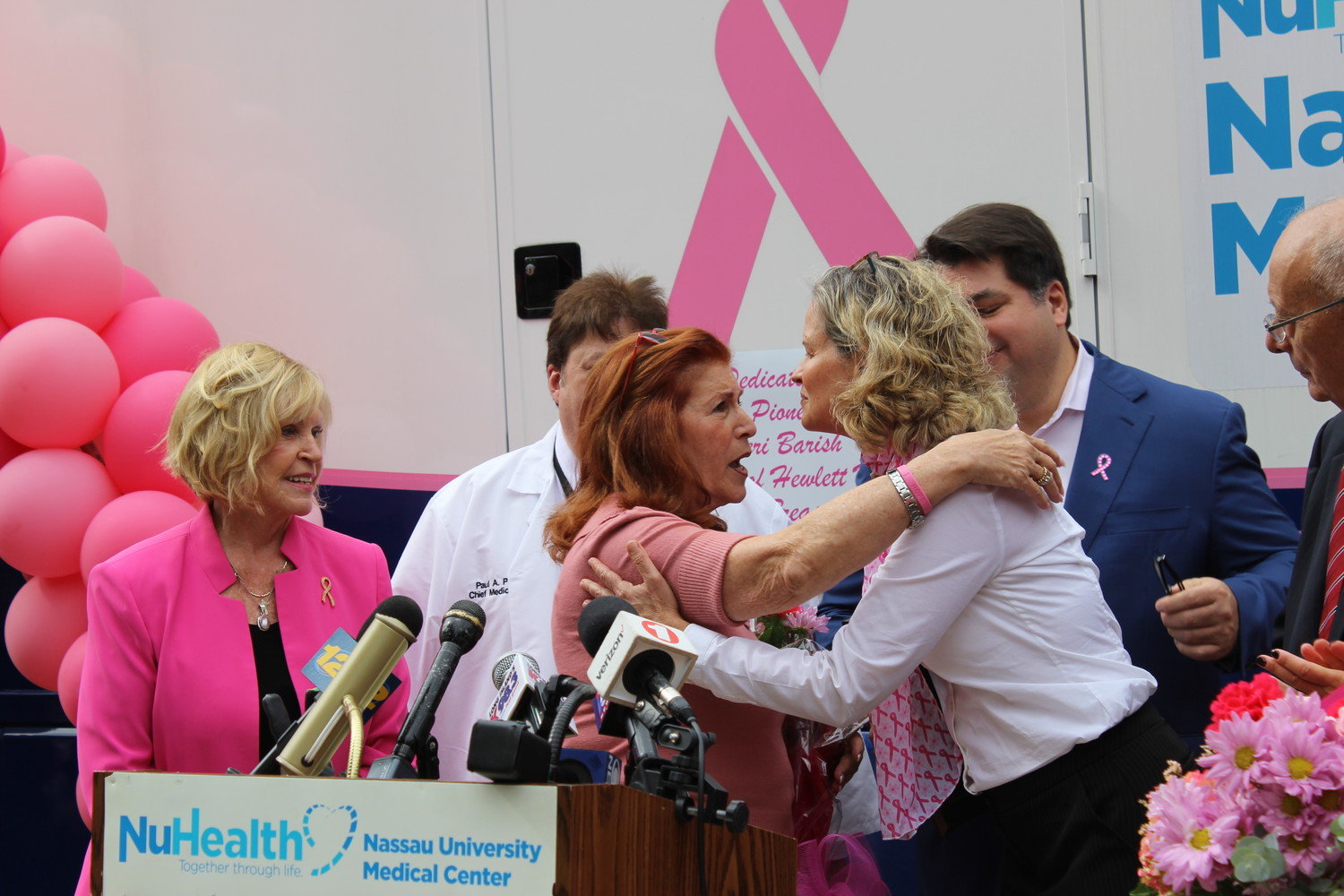Battling breast cancer takes persistence and support
Roughly one in eight women in the United States will develop breast cancer over the course of their lifetime, as noted by breastcancer.org, which serves as an information resource on the disease. That number equates to 12 percent of women in the country.
As October is Breast Cancer Awareness Month, survivors of the disease shared insight on what individuals should keep in mind when being treated. Breast cancer is a cancer that forms in the cells of the breast.
Geri Barish is the executive director of the Hewlett House located on East Rockaway Road. The house was opened in 2001 to serve as a haven for those struggling with cancer and their families to come and experience the support groups, education and social events. Barish is a three-time cancer survivor and noted important things for patients to keep in mind. “Patients should remember to be persistent with questions,” she said. “There is never a question that is not important. The more educated you are, the better off you will be.”
Barish added that people should seek support groups when undergoing treatment. “Family and friends can obviously be a great support system,” she said. “But it’s important to speak with others also diagnosed since they will know exactly what you’re going through.”
Dr. Charley Ferrer is a breast cancer survivor and the founder of the Staten Island-based Cancer Tamer, a foundation that according to its website, “Seeks to provide education, empowerment services and life-enriching activities to women with cancer.” Ferrer founded Cancer Tamer after her Stage 2A breast cancer diagnosis in 2016. “I don’t like the words associated with overcoming cancer such as a ‘survivor’ and ‘fighter,” Ferrer said. “I thought that I didn’t survive or battle cancer, I tamed it. That’s where the name came from.”
Elana Silber is the executive director of Sharsheret, a nonprofit that supports women and their families battling breast and ovarian cancer. Silber said it is essential for patients to have support from family and friends during the treatment process. “You should always have someone with you at your treatments to take notes for you,” Silber said. “You should also have people to help you with physical needs such as cooking and cleaning.”
A common consensus among Barish, Ferrer and Silber was that people diagnosed with breast cancer should seek more than one opinion before treatment. “Make sure you speak with multiple doctors,” Barish said. “Education is essential and it’s important to weigh your options when it comes to treatment.”
When it comes to finances, Ferrer noted the “little things” will add up. “After surgery, you’re going to spend about $200 in bandages,” she said. “Make sure to have your doctor write a prescription for everything.”
From a psychological standpoint, Ferrer said that patients should always try to keep a positive mindset throughout the process. “However you deal with the disease is your choice, but you should try to find anything to do that will make you feel better,” she said. “It’s important to keep yourself going so you don’t fall into being depressed.”
FYI
Cancer Tamer — cancertamer.org, Hewlett House—https://hewlett-house.org/ and Sharsheret — sharsheret.org.

 49.0°,
Fair
49.0°,
Fair 




